For Nikki Giovanni
We will always be in conversation with Nikki, and the Black women writers that sustained her.
Dear Nikki,
Thank you for your generous teachings; what a gift that you have left us with no complaints.
. . . there can be no complaints in this passing . . . no sorrow songs . . . no if onlys . . . it is all here: the work the love: the woman: who gave and gave and gave . . . no complaints of too long or too hard . . . no injustice of accident or misunderstanding of disease . . . just one great woman moving to the next phase . . . and us on the ground . . . giving Alleluias
-No Compalints, poem by Nikki Giovanni
For Gwendolyn Brooks (1917 - 2001)
You are gone, but will never be forgotten to us. As you wrote about your friend and poet Gwendolyn Brooks, your death is now to us ‘a restructuring, a reincarnation that revolves into a resolve that we now carry in our hearts’.1
Dear Nikki, we carry you in our hearts. As long as we have your words, and the memory of your life, we can only deepen our gratitude for the guide you will always be to us, in love, joy, poetry and struggle.
Dear Nikki,
You lover of Black women, thank you for reminding us of the gift of our relations with each other.
Some of my favourite Nikki poems are the ones that she addresses to other Black women, fondly: For Gwendolyn, For Maya, For Nina, For Saundra. You loved the Black women in your orbit. You were always in conversation with the Black women writers of your time, in your writing, in your friendships, perhaps even celestially.
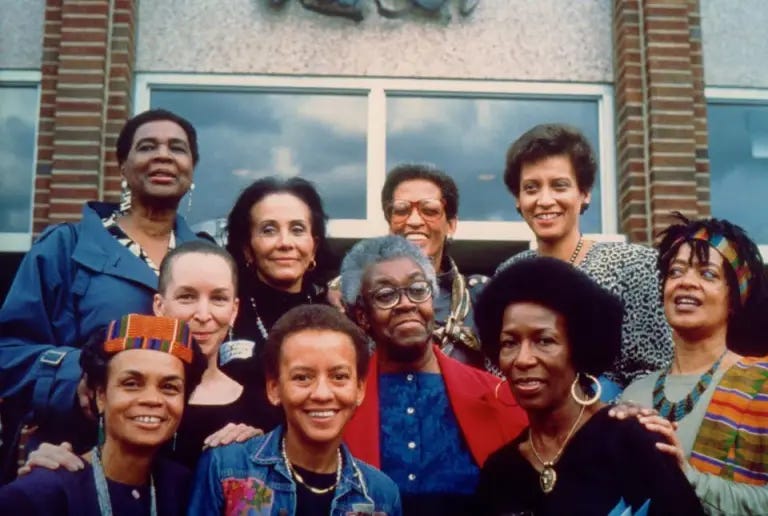
Gwendolyn Brooks and Nikki Giovanni, sisters in Black poetry, shared a birthday on June 7th. 26 years apart in birth. Like Nikki, Gwendolyn died of cancer. The words Nikki wrote for Gwendolyn, these alleluias, we speak for Nikki.
We speak the same alleluias for Toni Cade Bambara, who died of colon cancer on December 9th, 1995. She and Nikki Giovanni left this realm on the same day; both sisters in life, in motherhood, in sickness, in struggle and in death.
When Nikki and Toni Bambara both lived in New York City, Nikki drove them both to work at Rutgers University twice a week. She attended as many of the ‘ninety million causes’ that Bambara was involved in as radical organizer, writer, film-maker and teacher. Nikki described how these drives allowed them to ‘discuss and change the world’ - which they inevitably did. We celebrate the possibilities that emerged from their quotidian experiences - driving, teaching, baby-sitting, chatting and mothering.
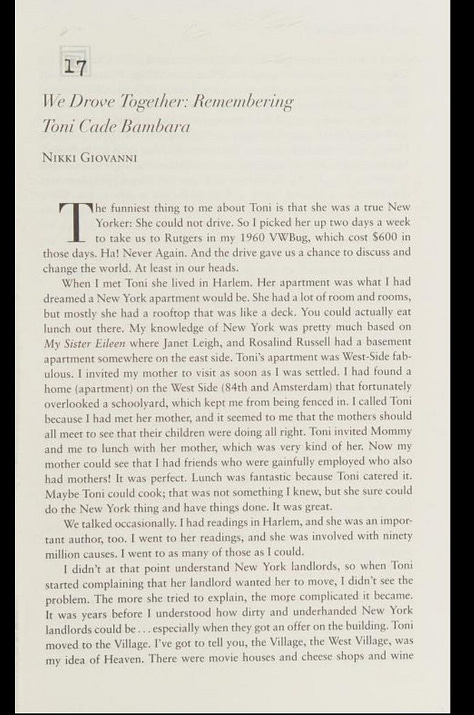
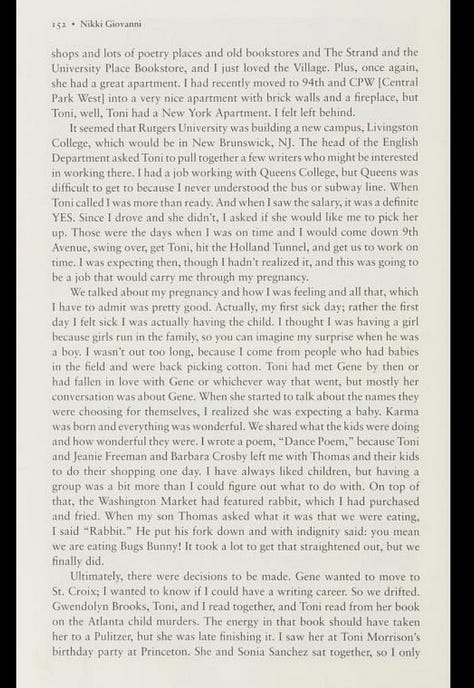
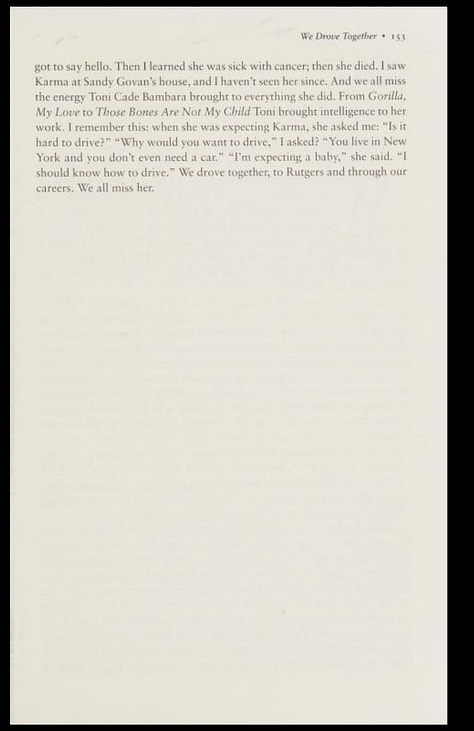
Both Nikki Giovanni and Toni Bambara were life-long friends with Toni Morrison. From Gwendolyn, to Bambara, to Morrison, to Ntozake Shange, to Sonia Sanchez, to Nikki, these Black women writers were always in conversation. Our Black feminist foremothers kept each other's writing alive, the literature of their time like a mixed chorus, as Toni Bambara wrote.2
In almost every interview, Nikki spoke about the dear Black women in her life, about Toni Morrison and all the Black women writers of her time. What a gift it must have been that these women writers had each other, held each other, loved each other - and they made sure we knew of it.
I think of the poet sister Sonia Sanchez who turned 90 years this year. In her birthday speech, she overflowed with a gratitude that we all felt as we watched her brim with tears when she spoke of how much she missed her sisters, her fellow Black women writers. How she missed receiving calls at 3am from her sisters who insisted that she listen to a passage they just wrote. I wonder what sister Sonia feels today. Though she may feel the ache of another one of her sisters gone, I know she is still overflowing with gratitude.
Dear Nikki,
You knew how to make family wherever you went, which is to say you knew how to love.
You didn’t ever let us forget how these women shaped your life and you spoke fondly of them - friends of your mind, friends that gather all your pieces and give them back to you in all the right order, like Toni Morisson described in Beloved.
Nikki said she first met Toni Morrison after being so utterly moved by reading The Bluest Eye that she walked down to Toni’s office in New York without ever having spoken to her. When the security guard asked if Toni was expecting Nikki, she said no, wrote her name on a note, and sent it upstairs, waiting for Toni’s invitation. Toni cleared her schedule for Nikki, and they went to a coffee shop across the street - and that was the beginning of their life-long, loving friendship.3
When grief visited Nikki after her mother and sister had transitioned just two months apart, she turned to her good friend Toni Morisson for some encouragement:
“One afternoon I was sitting at my desk just sort of being dismayed when I decided to call Toni. I probably talked more than ever and she was kind enough to listen. She finally said Nikki, Write. That’s all you can do. Write.”
-Nikki Giovanni’s poetic tribute to Toni Morrison in The Last Interview4
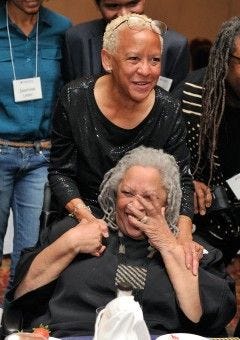
Dear Nikki,
Thank you for teaching us to embrace change, growth and the evolution of self.
You were doing it your way all along. You never had to apologize to anyone about who you were, what you wanted, who you loved, what you wore, or what you believed. You knew what your work was, what was your business and what wasn’t. You remained open to life. You were at home in your body, in yourself, in your duty, and in love.

Dear Nikki,
Thank you for teaching us to love - to love the pleasures of life, to love our sisters, to love food, music, children, play, imagination, Blackness, womanness and struggle.
You loved food and you made sure we knew it.5 It brought you joy, and we tasted it in your poems. In your poetry, we can’t tell food apart from love - it was all sweet loving. You reminded us that the pleasures of life mattered, maybe that’s why you loved living so much.
Nikki died in the loving company of her wife, Virginia Fowler. Ms. Fowler, then the associate head of the English department at Virginia Tech University, recruited Nikki in 1987 to be a visiting professor. Nikki and ‘Ginney’, as she lovingly called her, were a couple ever since. Virginia Fowler became a scholar of Nikki’s work, editing her collections, writing her biography, “Nikki Giovanni” (2013) and eventually co-producing the documentary on Nikki’s life, Going to Mars. They married in 2016, and both retired in 2022. How intimate, to have a lover who is a scholar of your work. How beautiful, to have a partner who was more than a lover.
On her marriage to Virginia Fowler, Nikki said: “I’m very fortunate to have somebody who loves me. I don’t care what anybody has to say about it.”6
Dear Nikki,
Thank you for teaching us that you can create yourself, again and again; that you are first responsible for changing yourself.
“There’s only one person in this room I can change: me. And I just want to make sure that nobody else changes me. That’s all I care about. Because that’s all I can care about…Because you’re all you got. And you got to start off there. Love: how do you learn about love? You learn about love because you love yourself.”7
You didn’t believe your poems could change people, or that you could change the world. But in telling your truth, you touched us. You helped us see ourselves anew, see the world anew, and imagine new worlds.
Dear Nikki,
Thank you for showing us how to love life; in all its beauty and struggle.
We know you loved old age. You weren’t afraid of old age. You life didn’t stop because of cancer. Breast cancer, lung cancer - you lived with it, and your insisted on living your life fully.
“So every morning that I wake up, me and cancer, we negotiate. And I say, well, let's take a shower… and one day we won’t.”8
You remained generous in the gift of your words, generous in the gift of your teaching, generous in extending the gift of your life.
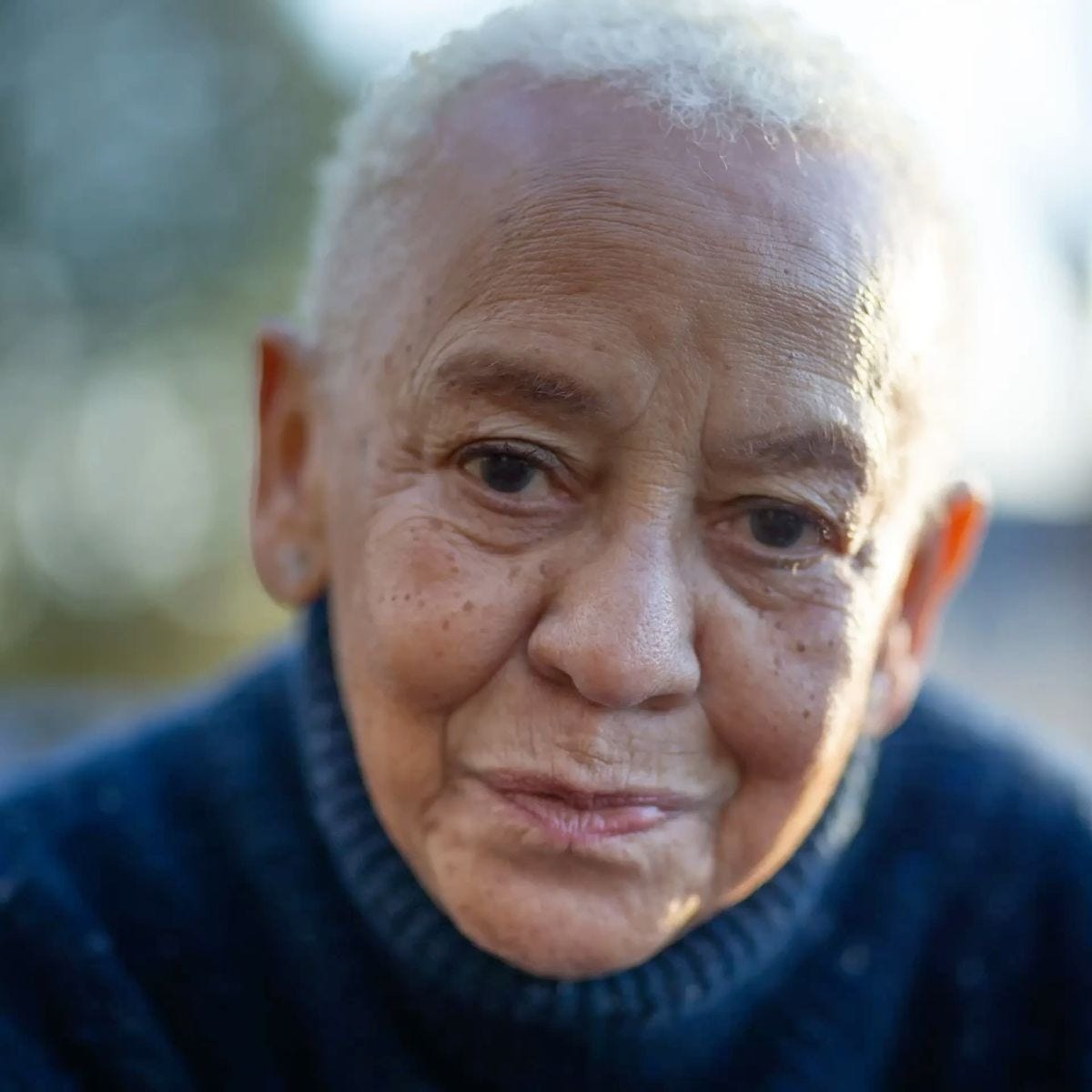
Dear Nikki,
Thank you for showing us that we can build new worlds, however long the journey.
“I’m a big fan of Black women. ‘Cause in our blood is space travel. Because we’ve come through an unknown, to an unknown. And that’s all that space travel is. If anybody can find what there is in this darkness, it’s Black women.”— Nikki Giovanni, quoted in the documentary, Going to Mars.
Dear Nikki,
As you transition to Mars or beyond, we send you with your flowers, with beauty, with poetry, and words of gratitude. Your did your work, Nikki. You will never be forgotten to us. We will forever be in conversation with you; alive in your words, your poems, and the memory of your life.
Nikki’s final book of poetry, The Last Book, is set for publication in fall 2025. How generous that she has left us with the wisdom and beauty of her words, to guide us as we journey to Mars. May we keep her alive through her words, and our words. More so, may we keep her memory alive in our love, our joy, our struggle, and our revolutionary love.
In solidarity,
Stephanie
Subrscribe to sunday meditations for more Black feminist thought, excerpts, inspiration, and connections.
Spend some time reading through this curation of poems, essays, interviews and speeches related to Nikki Giovanni and the Black women writers in her life. I engaged with each of these pieces in the week since her transition, making space to reflect on the lessons she left us. I hope you find something worth coming back to in her memory. x
From the poem No Complaints, By Nikki Giovanni
An interview with Toni Cade Bambara, in Black Women Writers at Work, edited by Claudia Tate, Continuum, 1983, pp. 12-38. In this interview Toni Bambara discusses some of the mentors in her writing, noting how central Black women writers’ friendship was to their life and their work.
“Toni Morrison will always be with us”: Angela Davis, Nikki Giovanni and Sonia Sanchez pay tribute - A beatiful interview with these Black feminists who cultivated a rich, loving and intellectually generous friendship with each other.
Nikki Giovanni's poetic tribute to her friend Toni Morrison in The Last Interview excerpt
Of course Nikkis Giovanni’s Obituary had to reference her love for food, and how she often showed love through her home-cooked meals. Her poetry tells it all.
This essay, The Loneliness of Black Genius provides a review of the documentary Going to Mars, in which we see Nikki in her queerness, exchanging moments with her partner Virginia Fowler.
I’ve Done My Job: An Interview with Nikki Giovanni by Lauren K. Alleyne. Nikki gave this quoted response when asked what she hoped her poems would do, if not change the world. She believed that she just needed to do what she could do, and that was her responsibility.
An NPR interview with Nikki: “Nikki Giovanni doesn’t think about her legacy, but here’s a time she felt proud” - a beautiful interview in which Nikki speaks about her approach to living with cancer.

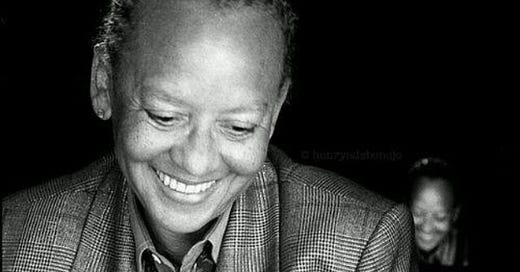



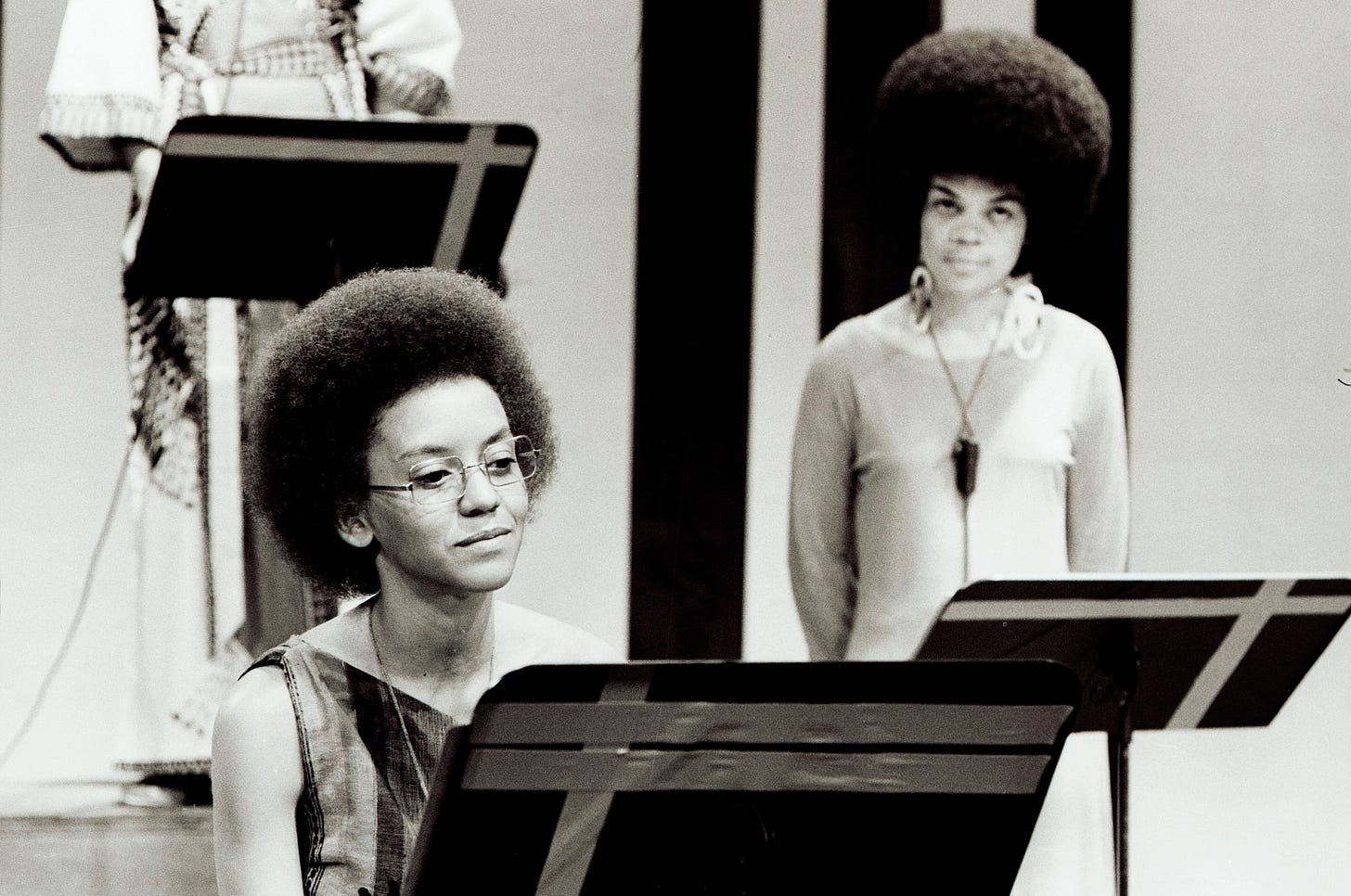
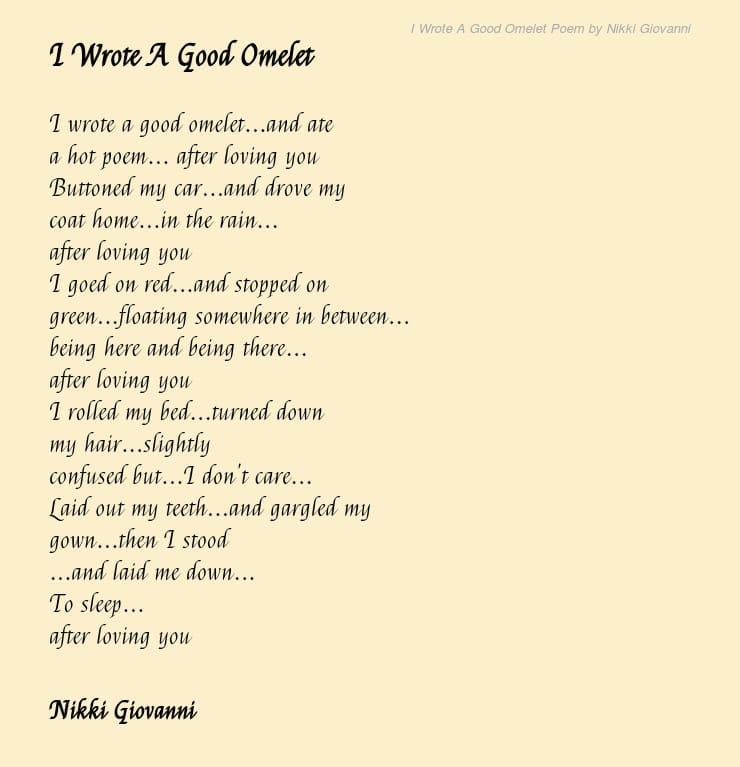
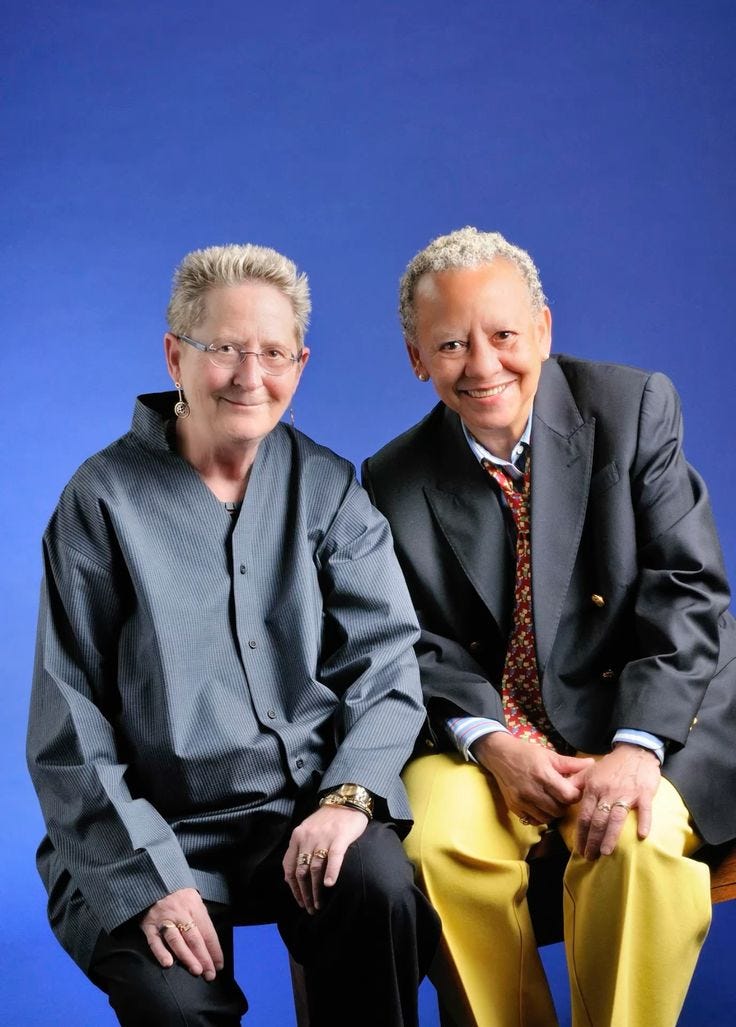

Sooo good, thank you for sharing this history! Nikki's Acolytes is the first book of poetry to move me. I used to believe I had no use for poems, but when I read Nikki I feel it in my body.
This is beyond beautiful! May she rest in perfect peace 🤍. Thank you!🫂